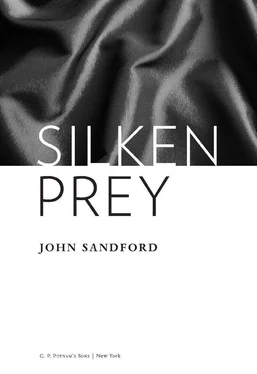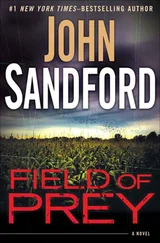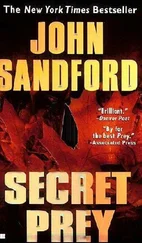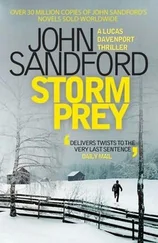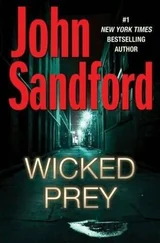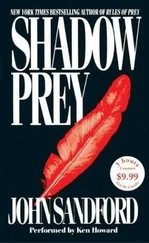But their paths had continued to cross: she’d become a professor of psychology at the University of St. Patrick and the College of St. Anne, and because of Lucas, had taken an interest in criminal pathology. She’d worked in most of the state’s prisons, including those for the criminally insane.
Lucas got to the Thai place first, and she came in ten minutes later. In the early years she’d worn a full habit, and had persisted for years after most nuns had gone to modern dress. She’d finally changed over, and now wore what Lucas called “the drabs”: brown or gray dresses and long stockings with a little brown coif stuck on top of her head like the vanilla twist on a Dairy Queen cone.
She slid into the booth opposite him and asked, “What’s the problem?”
“How you doing, Elle?”
“I’m doing fine, but I’m running a little late.”
Lucas told her about Dannon, Carver, and Grant, about what he thought and what Flowers thought. He paused while she ordered a cup of chai, and he got a second Diet Coke, and then continued. When he finished, she took a sip of tea, then said, “You know there are no guarantees.”
“Of course.”
“Go after Dannon,” she said. “Dannon is the thinker and probably a manipulator. He’ll try to figure a way out. Carver would consider that unmanly. He’d clam up, and if necessary, take one for the team. He’d sit there and say, ‘Prove it.’ Dannon might say the same thing, but he’d be looking for a way out.”
“Dannon wouldn’t take one for the team.”
She made a moue, then said, “There’s one exception. If he is, in fact, in love with Ms. Grant, he might take one for her . . . if she’s involved. If he thinks Carver acted alone, he might also turn on Carver. Not because he wanted to, but to protect Ms. Grant.”
Lucas said, “A hero.”
“Yes. In his own eyes. Have you considered the possibility that Ms. Grant was involved in the killing?”
“I have, but there’s no way to know. I can see Dannon or Carver doing it, but Grant, with all that she’s got going for her, and the campaign . . . it seems nuts.”
“Yes, but step back,” Elle said. “Consider that fact that if they were going to take the risk of playing this dirty trick on Senator Smalls, she almost had to know about it—that something was up. Maybe not the details. When Tubbs disappeared, she most likely would make an . . . assumption. She probably would have asked some questions. Whether anybody would answer her, I don’t know. That depends on all the different personalities involved.”
Lucas explained that he didn’t feel that he could go directly after her: that it would be unfair if she was innocent, and that too much was on the line.
“So go after Dannon . . . but ask that she be there when you question him. He might not give up much, but keep an eye on her. On her reaction. Is she astonished that anyone would think that Dannon could do it? Or is she worried? Does she try to protect him, or does she throw him under the bus? Does she feel like she can’t throw him under the bus? That could tell you a lot, and it’d be a private session. Nothing leaking to the press.”
• • •
ELLE WAS ON HER WAY to a piano recital, so Lucas walked her back to her car, and they agreed she’d come over to Lucas’s house the following week for dinner. When she was gone, he wandered along the street, looking into windows, thinking about the possibilities, and a couple of blocks down the street took a call from the governor: “I saw the piece in the paper this morning,” Henderson said. “Was that you, trying to break something loose?”
“Not necessarily,” Lucas said. “Listen, what would you think about the idea of suspending the investigation until after the election? If Grant is involved, we could take her down even if she got elected. But I’m starting to worry about the fairness of it all.”
“Let me worry about that,” the governor said. “Do you have any indication that the Grant campaign was involved in . . . Tubbs’s disappearance?”
“No proof. But Grant has a couple of killers working for her.” Lucas filled him in on Dannon and Carver.
“Okay. You keep pushing, but no more press,” Henderson said. “No more talking with Ruffe. No comments to anyone. I will have a press conference, and I will tell everybody that I spoke to the lead investigator in the case—that would be you—and that while you have established that the child porn was an attack on Senator Smalls, and that he almost certainly is innocent, that there is, at this point, no indication that the Grant campaign was involved. I will say that it appears likely that Tubbs was working alone, out of a personal animus toward Smalls. I’ll ask Porter to back me up. He’ll do that.”
“Why do you think he’d do that? He’s pretty goddamn angry,” Lucas said.
“Because I’ll call him before the press conference, and I’ll tell him what I propose to say, and tell him if he doesn’t back me up, I won’t have the press conference,” Henderson said. “The press conference will get him in the clear in tomorrow morning’s papers and TV, which he desperately needs.”
“All right. I’ll keep it quiet.”
“Attaboy. This thing is going to work out, Lucas. For us. It really shouldn’t matter whether we get the killer this week or in two weeks. What matters right now is to try to square up this election. Let’s focus on that: you do what you do, and let me try to get things straight with the voters.”
“That sounded like something your weasel wrote,” Lucas said.
“Who do you think taught him his stuff? If anything new erupts, call me, first.”
• • •
A LITTLE LATER, as he was driving back to his house, he took another call, this one from Kidd. “I’m not too far from your place. You got time for a walk?”
“I’m on my way there, now,” Lucas said. “What’s up?”
“Let’s talk about it when I get there. Radios make me nervous.”
Lucas realized he was talking about cell phones, and said, “See you there.”
Lucas had just pulled into his garage when Kidd showed up, driving a Mercedes SUV. Lucas said, “Fat ride. That’s spelled P-H-A-T.”
Kidd: “Wrong century, pal. Phat was about 1990.”
“That’s the second time one of you computer people told me I was outdated.”
“Well, you gotta keep up,” Kidd said. He paused, looked up at the sky, then said, “You know, I take that back. Really, maybe you don’t need to keep up. Maybe keeping up is for idiots.”
“Let’s take that walk,” Lucas said.
They strolled up Mississippi River Boulevard, taking their time. Kidd asked, “You get anything out of those army docs?”
“I had one of my guys look at them—he’s ex-army, an MP captain. He said Dannon and Carver are dangerous guys.”
“He’s right,” Kidd said. He had his hands in his pockets and half turned to Lucas. “I want to tell you some stuff, but I don’t want it coming back to me, or showing up in court. It’s for your information—and I’m giving it to you because I trust you, and because you may need it.”
“You didn’t stick up a 7-Eleven store?”
“Worse,” Kidd said. “I stole military secrets.”
“I got no problem with that,” Lucas said. “What’d they say?”
“After I pulled those docs out of the record center, I did some more digging around,” Kidd said. “It turns out, there’s a classified report on what happened with Carver. There was no way I could get it to you by ‘mistake.’”
“Okay.”
“The short version of it is, he and a squad of special operations troops flew into a village in southern Afghanistan in two Blackhawks, with a gunship flying support. They were targeting a house where two Taliban leadership guys were hiding out with their bodyguards. They landed, hit the house, there was a short fight there, they killed one man, but they’d caught the Taliban guys while they were sleeping. They controlled and handcuffed the guys they were looking for, and had five of their bodyguards on the floor. Then the village came down on them like a ton of bricks. Instead of just being the two guys with their bodyguards, there were like fifty or sixty Taliban in there. There was no way to haul out the guys they’d arrested—there was nothing they could do but run. They got out by the skin of their teeth.”
Читать дальше
